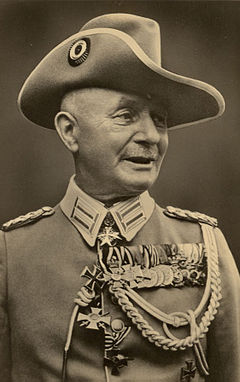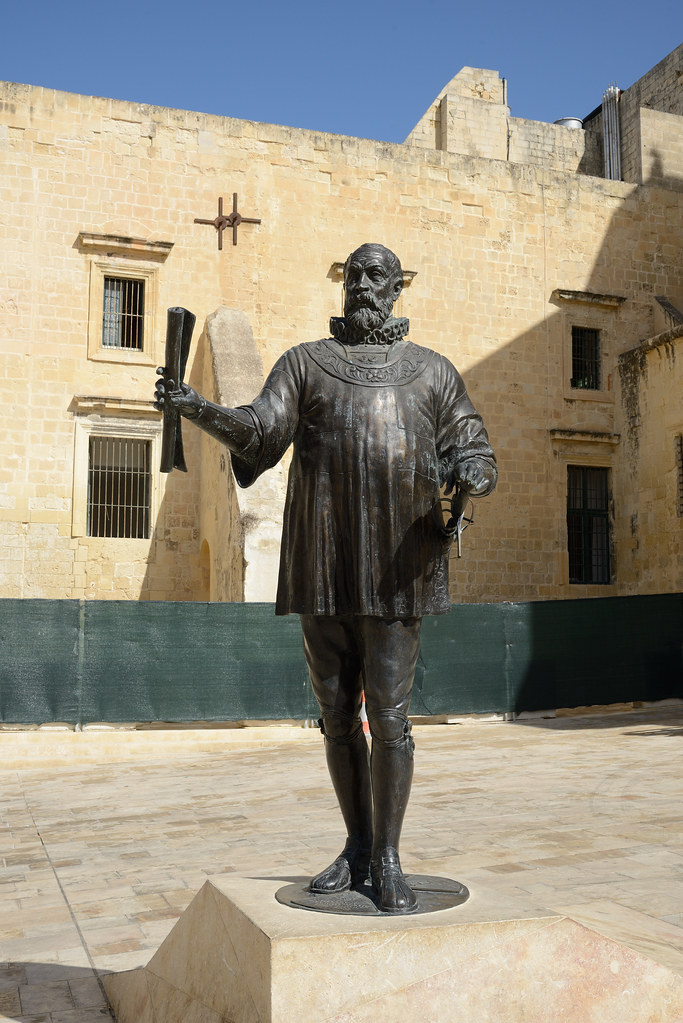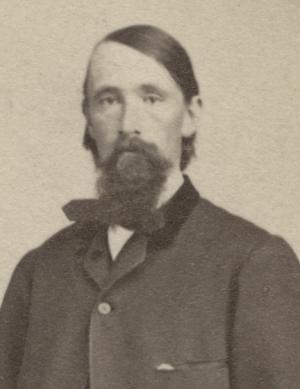El “sentido correcto del mando” lo conforman una serie de cualidades personales y anímicas que, perfiladas y compuestas por la educación, el estudio voluntario y el entrenamiento y el empleo específicos, van a producir un mando capaz de conocer, decidir e impulsar las acciones más adecuadas en los distintos niveles de la actividad militar.
Este “sentido correcto” corona, perfecciona, gobierna, dirige e impulsa la actividad de todos los otros sistemas operativos de maniobra, de todos los órganos de la actividad militar hacia la consecución de los objetivos. Y lo hace de la manera más adecuada posible, según sus medios y la situación militar concreta.
 GENERAL PAUL EMIL VON LETTOW-VORBECK.
GENERAL PAUL EMIL VON LETTOW-VORBECK.
La sabiduría es la primera cualidad para un mando. La sabiduría es un hábito por el cual juzgamos rectamente de las cosas militares y humanas, bajo un instinto especial, que nos las hace conocer y saborear con cierta connaturalidad. Aquí sabiduría significa, a la vez, saber y sabor.
La sabiduría comprende el entendimiento militar, que es una penetrante y profunda intuición de las cosas militares en forma de “aprehensión”, es decir, sin emitir juicios o disquisiciones sobre ellas. La intuición es una forma de conocimiento directo, que se caracteriza por la inmediatez y la contemporaneidad de aquél sobre el tema que sea.
A la sabiduría se oponen la estulticia o necedad, el no saber lo que era posible y debido, como cosa contraria y la fatuidad, como la pura negación de ella.
 GRAN MAESTRE JEAN PARISOT DE LA VALETTE, DE LA ORDEN DE MALTA.
GRAN MAESTRE JEAN PARISOT DE LA VALETTE, DE LA ORDEN DE MALTA.
La serenidad es otra cualidad imprescindible para el jefe conductor. La serenidad permite al mando mantenerse tranquilo, sin turbación física o moral que le afecte, aunque estén presentes la tensión y los problemas.
La serenidad protege y mantiene lúcidos los reflejos y la potencia mentales, en los que se apoya la sabiduría.
Dos de los fallos más graves y ridículos en los que puede caer el mando son la soberbia y la vanidad.
La soberbia es la plena satisfacción de sí mismo.
 GENERAL DANIEL MORGAN.
GENERAL DANIEL MORGAN.
La vanidad es creer que somos objetos merecedores de la admiración ajena. El vanidoso es como un estilita, que se satisface pensando en la acción que cree despertar a los demás. Cualquier signo de aprobación que reciba le sirve como reafirmación en su idea.
En algunos de nuestros artículos se ven situaciones que ejemplifican lo útil que resulta tener un enemigo especialmente soberbio o vanidoso.
La humildad, ajustándose en un equilibrio difícil, a la real y relativa valía es el mejor antídoto para estas vulnerabilidades anímicas. La humildad incluye la moderación. Recordemos que la falsa humildad es una forma alotrópica de la soberbia.
 GENERAL HERMANN BALCK.
GENERAL HERMANN BALCK.
El coraje moral, como bravura y entereza espiritual, que le permita contrarrestar la incertidumbre, el cansancio, el esfuerzo y la frustración o diferencia entre los planes y los medios y las realidades sucesivas de la situación, es otra característica del sentido correcto del mando. Y no sólo se trata de vencer a sus demonios, de tal manera que su serenidad no se debilite. Sino impulsar también a los demás para que superen sus propias aprensiones y debilidades en las pruebas.
Con lo que se convierte también en un factor eficaz de la capacidad de liderazgo, que supone conectar, motivar y dirigir desde cualidades anímicas a su colectivo y no sólo desde la autoridad de su puesto.
 JAN ZIZKA.
JAN ZIZKA.
Otro factor es la empatía como participación afectiva, no necesariamente emocional, en las necesidades personales ajenas. En ese puente encontrará el mando un enriquecimiento personal humano. Que será otro resorte más para conseguir entusiasmar a sus hombres. El entusiasmo es la energía humana capaz de vencer la entropía del cansancio, la caída de la moral, la falta de confort, los miedos y el desinterés en los momentos importantes y decisivos de la actividad militar.
La voluntad es la potencia del espíritu. Está enraizada en el coraje moral, se informa de la sabiduría e interactúa con la serenidad, alimentándola y apoyándose en ella. La voluntad permite al mando superar los demonios de la incertidumbre, los miedos, el esfuerzo y el cansancio, la falta de confort y las frustraciones. La voluntad se lanza tras las oportunidades, apreciadas por la sabiduría y decididas por el coraje moral, que disipa las dudas tácticas y operativas o estratégicas, según el nivel del mando.
La disciplina y la voluntad están enraizadas en la educación personal, a través del cumplimiento del deber hacia la sociedad, la institución militar y los hombres mandados. La disciplina nutre la moderación y la humildad del mando, dándoles un sentido humano y militante, alejado de connotaciones místicas.
 CHARLES FLANDREAU.
CHARLES FLANDREAU.
La autoridad institucional viene por la delegación recibida del mando. Se manda para cumplir las ordenanzas y los objetivos que se vayan asignando. Pero la conducta personal y la capacidad profesional del mando generan su prestigio y su ejemplo entre los hombres, que dan a la autoridad recibida su calidad personal y concreta.
La educación militar es el dominio del oficio. Su conocimiento lo da el estudio en escuelas y academias y en la actualización permanente a través de los cursos y las lecturas posteriores. Su aplicación está en la doctrina y los reglamentos. La maestría viene de la aplicación del conocimiento en los juegos de guerra o simulaciones, en los seminarios de discusión y divulgación, en las maniobras y ejercicios de campo y en las situaciones reales a las que se tenga que enfrentar. Recordemos que el oficio militar específico tiende a no practicarse en la vida…
No son todo los que están, ni están todos los que son…